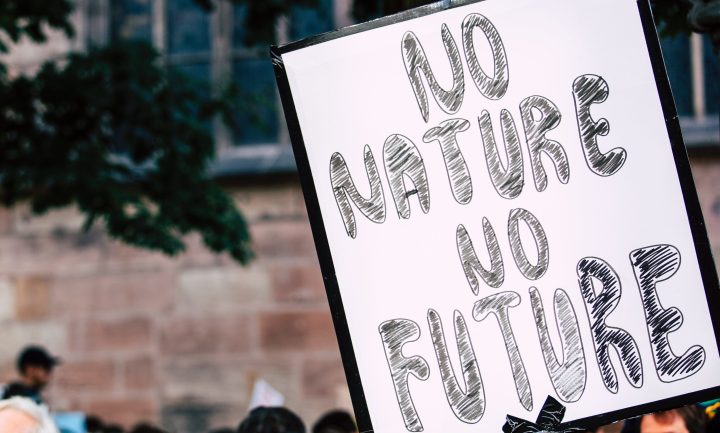THE CONVERSATION
Climate crisis: what to consider if you’re questioning whether to have children

Is the disastrous impact we’re having on the planet affecting our decision about having children of our own?
The warnings about the disastrous impact we are having on our planet are becoming more dire. The UN Environment Programme’s most recent emissions gap report, which tracks our progress in limiting global warming, revealed that the world is on course for a “hellish” 3°C of global heating before the end of this century.
How can you plan for a family when the outlook is so bleak? A recent study, conducted by Hope Dillarstone, Laura Brown and Elaine Flores from University College London, has reviewed existing evidence to shed light on how the climate crisis is shaping decisions about whether to have children or not.
Analysing research published between 2012 and 2022, the researchers found that people who were concerned about the climate crisis typically wanted to have few children or no children at all. Concerns about overpopulation and overconsumption, uncertainty about the future, and worries about meeting their family’s needs were among the factors driving people’s desire for smaller families.
Do you feel guilty about your potential child’s carbon footprint? Perhaps you’re frustrated by the materialistic values of modern society and the inevitability of overconsumption. These issues also came up in several of the reviewed studies.
There is a long, problematic, and very political history behind the idea of overpopulation. In various forms, the idea has been floating around since at least the late 18th century. It has led to unethical “population control” measures in some countries.
Some (such as Paul Ehrlich, author of the controversial 1960s book “The Population Bomb”) argue that there are already too many people living on our planet and that the sheer number of people is causing our current environmental crisis. But what overpopulation arguments frequently miss is that it’s not just about how many people are on the planet, but also how sustainably we live that matters. Numbers cannot tell the full story.
The urgency with which we need to tackle the climate crisis also implies that opting not to have children for the sake of the climate would now prove insufficient and ineffective. Even with reduced fertility, the population will continue to grow because of population momentum. Even if the fertility rate is declining, there is still a large number of people of reproductive age in the global population, resulting in more births than deaths.
The participants of several studies pointed out that more structural solutions, such as drastic reductions in carbon emissions, are urgently needed and promise to be more effective than reducing family size.
Uncertainty about the future
Are you worried your future children may not be able to enjoy nature due to damaged ecosystems? Perhaps you’re concerned about a more catastrophic outcome, such as full societal collapse? The review shows that these are major themes influencing people’s decision to have fewer children, particularly for those living in the US, Canada, Europe and New Zealand.
These concerns are understandable. The UN’s recent emissions gap report concluded that there is only a 14% chance that the world will limit global warming to the maximum 1.5°C rise that is being called for by climate scientists.
At the same time, hundreds of millions of people around the globe are already experiencing the catastrophic consequences of climate change in their everyday lives. In Zambia and Ethiopia, for example, climate change concerns are having much more immediate impacts on childbearing.
In a study from 2021, which explored the impact of droughts on Zambian women’s social and financial well-being and their reproductive lives, one participant said: “The six children I desire to have may not have enough food to eat.” But to have fewer children, people require access to contraception, the supply of which can be disrupted, particularly in times of crisis.
In parallel, other respondents in Zambia reported that they are considering having more children to provide financial and labour support. This highlights how the climate crisis is already and very directly impeding reproductive justice – the right to have children, to not have children, and to parent in safe and healthy environments – especially in the global south (lower-income countries in Africa, Asia and Latin America).
Childbearing as a political choice
Ultimately, the climate crisis is a collective, and therefore political, crisis. We are much more likely to avoid the worst climate outcomes if we mandate our governments to drastically reduce the emissions generated by industry and consumers than if we concentrate on changing our behaviours.
One study included in the review made this point by analysing how environmental activists approached childbearing decisions. Some decided not to have children as a means of exerting political pressure and advocacy, for example, through the former BirthStrike movement.
For others, not having children was a choice made to free up time and energy for political and advocacy activities centring on the climate crisis. Some people instead saw having children as a way of raising future activists.
In the end, the choice is deeply personal. The only “right” answer is the one that is best for you. But we can all do more to make sure policies help everyone enact their own choices. DM
This story was first published on The Conversation. Jasmine Fledderjohann is a Senior Lecturer in Sociology at Lancaster University. Laura Sochas is a Leverhulme Early Career Fellow in the School of Social and Political Science at The University of Edinburgh.





















 Become an Insider
Become an Insider
The worlds population becomes less educated, probably less intelligent and more desperate every day. This is because intelligent and educated people tend to have far fewer children than the poor and hopeless masses.
It’s also because structural inequality, corruption and greed fails to lift people out of poverty.
If you don’t have children and spend the money you save on non essentials You have just the same impact as if you had children.
I don’t think that anyone could recommend that as an ethically sound factor (ie no children in order to enjoy a higher “quality of living”). But, even so, there would still be a net advantage as your non-existent children would not, in turn, have children of their own.
Unless action is taken, Africa is on course to add another 1 billion people within the next 30 years. This is going to have devastating consequences for biodiversity, climate and poverty. Population growth is a threat multiplier. Let’s stop the population denial. Every single person on earth has an impact, and there are already too many of us.
I believe that what you fail to take into account is that from a climate perspective, at least, it is over-consumption by the wealthy, ‘educated’ portion of the world’s population that is causing the bulk of the problem, rather than the poor. Have a look at the concept of the carbon footprint and in particular the per-capita carbon footprint of different nations.
Irrespective of the wealthy and their over-consumption, the more people, the more the need for housing, food, transport and consumption of many commodities. All these demands have to be satisfied by manufacturing something. The chain reactions are vast and are perpetuated by the multiplier effect of people having children. The exponential curve of world population suddenly takes off and natural resources are severely threatened. Poorer countries fell forests for cooking and shelter, as well as to expand agricultural land areas to grow more food. Technology will never provide the solutions to avert the disaster that will eventually befall our over-populated world. It is simply a numbers game, which will be aggravated by time.
Paul, you are quite right that someone from the wealthy world has a bigger environmental impact. However, I hope that the poor will steadily improve their lot, and as they do, their footprint will inevitably grow ever larger. Also, the millions from the poor world that migrate to the rich world annually, take on the typical footprint of the host country immediately on arrival, adding to the overall impact of the rich country. We have to bring human population to an end at some point? And surely, the sooner the better?
I grew up during the 60-70’s and at that time we people attuned to the ecological devastation at the time already knew that it was because there was too many of “us”. It has somehow now become taboo to point this elementary fact out. People die everyday trying to reach some pipe dream of “the grass is greener over there” whilst the bigger issue is ignored